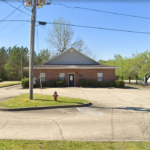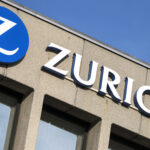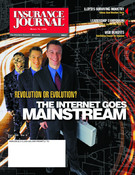Last month, members of the Council of Insurance Agents + Brokers (CIAB), the American Insurance Association (AIA) and the Reinsurance Association of America (RAA), in association with Russell Miller, gathered in San Francisco for the 14th Annual National Insurance Leadership Symposium (NILS).
This year’s symposium focused on the industry’s capacity to absorb and recover from the horrific events of Sept. 11. The conference began with a keynote address, “Terrorism: A New Face, A New World,” by Robert Gates, former director of the Central Intelligence Agency, who told the roomful of primary carriers, reinsurers and brokers to expect another terrorist attack—probably not in the U.S., but elsewhere against its interests. “Even though we are much better prepared and have done a lot to protect ourselves, no one can totally prevent an attack,” he said, using the analogy that police keep crime down, but don’t eliminate it.
Gates’ speech kicked off a program that examined the changed environment that exists within the industry post-Sept. 11.
The importance of underwriting
The second day of the conference opened with a keynote address given by John J. (Jack) Byrne, chairman and CEO of White Mountains Insurance Group Ltd. Byrne came out of retirement last year, at which time he and long-time business partner Warren Buffet purchased CGU—the result of the Commercial Union and General Accident merger—from its U.K. parent. The two restructured and renamed the company OneBeacon, as a super-regional independent-agency writer.
“I’ve been watching the love-hate relationship between the companies and their independent agencies for the past 56 years,” Byrne said. “And I want to tell you what a wonderful business this has been—no labor problems, no seasonal sales.” But it hasn’t been an industry without its own share of problems, according to Byrne.
In fact, six months have passed since the day that “changed the world in which we operate,” Byrne said. “We’ve lost our way in underwriting…Companies forgot that the loss ratio is the most important thing in the operations of the company.”
Coming to grips
The panel discussion “Capacity to Reinsure” highlighted the impact of Sept. 11 on the reinsurance sector. Jake Wallace, chairman emeritus of Willis Group and moderator, began the discussion by telling everyone in attendance that “Sept. 11 was a humongous event, but the problems of our industry preceded that day—even before Sept. 11, dramatic events were happening and a certain degree of turmoil was taking place.”
Nicholas Spaeth, senior vice president, general counsel and secretary for Employers Reinsurance Corp. (ERC) was the first panelist to share his views. “Even before Sept. 11, ERC was looking at how they were underwriting…as well as our portfolio of risks,” he said. “And we saw that we needed to improve our underwriting and operational systems.”
Nicholas Prettejohn, CEO, Lloyd’s of London, agreed that a lot was going wrong with the industry before the terrorist attacks. “In Lloyd’s case, there were structural issues and performance issues,” he admitted. “Rates were at profoundly uneconomic levels pre-Sept. 11.”
Consistency continued to ring throughout the panel. “Certainly, our industry was not performing well prior to Sept. 11,” said Patrick Mailloux, president and CEO of Swiss Reinsurance America Corp. “And I truly believe that our industry is not a mysterious one. We’re now going back to the basics, doing our homework—and that means underwriting.”
Since the attack on the U.S., everyone has shortened their definition of risk appetite, according to James Duffy, chairman and CEO of St. Paul Re. “Insurance is a risky business, and reinsurance is an even riskier business,” he said. “I think that the prices for reinsurance have to reflect the volatility, but they have not yet.”
The sky is not falling
With the attack on America followed by the collapse of Enron, it was only fitting to have William Freund, chief economist emeritus of the New York Stock Exchange, deliver the luncheon address “After the World Trade Center: The Outlook for Business, the Economy and Wall Street.”
According to Freund, the U.S. was on the edge of a recession even before the Sept. 11 attack.
The problem was that the economy was moving ahead too fast, and the technology boom eventually came to an end, Freund explained. “Then came the WTC—so it was not the factor that triggered the recession.”
Freund believes that the U.S. will be out of the recession before mid-year. “Never underestimate the power of cheap money…in resuscitating an economy,” he said. “Washington’s wallet is open and there will be more spending.”
Americans need time for their optimism and confidence to be restored, he said. Growth will be slower and competition will be tougher than ever. “We are only at the beginning of our productivity growth,” Freund explained.
The good news is that the future according to Freund looks bright. “Despite the World Trade Center, despite Enronitis, the world is not coming to an end.”
The power of planning
“In any event such as the tragedy of Sept. 11, it provides us the opportunity to learn,” said Thomas Rodell, managing principal of Aon Risk Consultants Inc. Rodell was the moderator of the final panel discussion, “Capacity to Recover,” where he and three other company executives reflected on their recovery plans in the aftermath of the destruction. Sept. 11 was a day that none of them will ever forget. They all had offices in the World Trade Center, and therefore making sure all of their employees were accounted for was the number one priority.
“Uptown was normal; downtown was a war zone,” said Jerome Karter, vice chairman of SCOR US Corp. “Probably the biggest problem was that we did not assume that thousands of others would be making the same demands.”
Robert Shunk, chairman of Frenkel & Company Inc., agreed. “We never imagined the type of catastrophe could occur,” he said. “No disaster plan is perfect and there were some things that we did not anticipate…but true leaders surfaced.”
According to William Smith, president and COO of Kemper Insurance Cos., Sept. 11 left all Americans with a tremendous emotional impact that will take months—maybe years—to heal.
All four panelists agreed that in any disaster, communications need to be supported first and foremost. With phone lines tied up, company Web sites and e-mail were the quickest, most effective way to communicate following the attack. “You cannot communicate enough,” stressed Kemper’s Smith. “And maintaining employee information is crucial…current addresses, home phone numbers, cell phone numbers.”
The bottom line is that it takes a long time for people to heal after an event of Sept. 11’s magnitude, and this was witnessed first-hand by these executives. In addition to grief counseling of their employees, these men all went through some form of counseling of their own. “I told my story in a group counseling session with some of our employees and it wasn’t until then that I realized I needed to talk about it,” SCOR US’ Karter said.
Was this article valuable?
Here are more articles you may enjoy.


 Chubb CEO Greenberg on Personal Insurance Affordability and Data Centers
Chubb CEO Greenberg on Personal Insurance Affordability and Data Centers  Maine Plane Crash Victims Worked for Luxury Travel Startup Led by Texas Lawyer
Maine Plane Crash Victims Worked for Luxury Travel Startup Led by Texas Lawyer  Longtime Alabama Dentist Charged With Insurance Fraud in 2025 Office Explosion
Longtime Alabama Dentist Charged With Insurance Fraud in 2025 Office Explosion  Zurich Reveals Beazley Stake After UK Insurer Spurns Bid
Zurich Reveals Beazley Stake After UK Insurer Spurns Bid 


